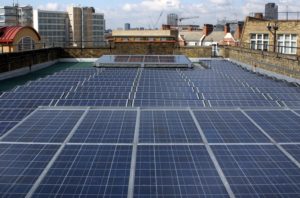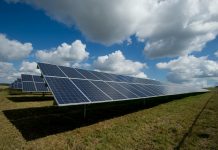The Solar Trade Association has warned that business rates taxes on commercial rooftop solar installations could increase eightfold next April unless ministers intervene. The association told the Financial Times last week of a looming “bombshell”.
The change is coming due to a periodic re-evaluation of business rates, where the Valuation Office Agency looks at how assets are valued, the income they generate and how costs have evolved over that period.
The STA says solar PV presents a particular challenge as a capex heavy technology where both costs and subsidies have dropped dramatically over the past five years. The issue is that the ‘rateable value’ that will come into force for rooftop solar as of next year bear little relation to the revenue generated by the installations but are instead based on fixed assumptions about capital costs of installation.

“This is a huge increase in the running costs of a rooftop solar installation that will affect both existing and new projects,” said association CEO Paul Barwell. “In some cases, it would actually send installations into negative returns: you would be spending more on the system in tax and maintenance than you would be getting back from the sale of the power and the Feed-in Tariff support.
“We therefore need Ministers to step in as soon as possible. The system needs to recognise that solar is a unique technology with both costs and revenues having come down over the last five years. This has created a complete mis-fit with the business rates system that needs to be fixed, or else we will face a prohibitive tax hike in this sector.”
As well as businesses, public authorities, schools and community buildings that have solar on their roofs are also at risk of being affected by this tax rise, although there are exemptions e.g. some agricultural buildings as well as some small business exemptions. The STA says government must take action between now and April to prevent investments being unintentionally undermined.
“Even though this is a wholesale change in the methodology used to calculate business rates for solar when compared with the last seven years, we don’t think the hike is intentional. It is rather an accidental by-product of the established business rates system and how it applies to solar PV,” Barwell continued.
“This is a complex issue. We believe the methodology shouldn’t be applied to solar rooftops in this way. We now plan to work with the three different government departments – Treasury, Communities and Local Government and Energy – to discuss our proposals to exempt self-owned rooftop solar from business rates altogether. Ministers must act now, otherwise this tax rise will all but eliminate the incentive for businesses to invest in solar.”
Follow us at @EnergystMedia. For regular bulletins, sign up for the free newsletter.



